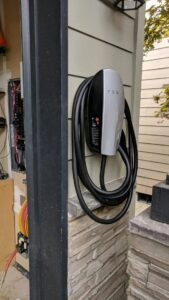Can a battery with a dead cell still start a car? The answer may surprise you. While it is indeed possible for a car with a battery containing a dead cell to start, there are a few factors to consider. A dead cell can significantly weaken a battery’s overall performance, making it more susceptible to low voltage and potential failure. In this blog article, we will delve into the details of dead cell batteries and explore the potential consequences they can have on your car’s ability to start. So, let’s get started and uncover the truth behind this common automotive dilemma.
Can A Battery With A Dead Cell Still Start A Car?
Introduction
When it comes to starting a car, the battery plays a crucial role. It provides the necessary electrical power to start the engine and operate various components of the vehicle. However, batteries can develop issues over time, including dead cells. A dead cell occurs when one of the battery’s cells fails, reducing the battery’s overall capacity and performance. In this article, we will explore whether a car can still start with a battery that has a dead cell and discuss the potential consequences of using such a battery.
Understanding Car Batteries
Before diving into the impact of a dead cell on a car battery, it’s essential to understand how car batteries work. Car batteries are typically lead-acid batteries built with six individual cells, each providing around two volts of electrical power. These cells are interconnected to deliver a total of 12 volts, which is required to start a car’s engine.
What Causes a Dead Cell in a Battery?
A dead cell in a battery can be caused by various factors, including:
- Physical damage to the battery
- Prolonged discharge or overcharging
- Aging of the battery
- Manufacturing defects
When a cell dies, it can no longer hold a charge like the other cells in the battery. As a result, the overall voltage output of the battery decreases, affecting its ability to provide sufficient power to start a car.
The Impact of a Dead Cell on Battery Performance
A battery with a dead cell experiences a significant reduction in its overall capacity and performance. Here’s how a dead cell can impact a battery:
Reduced Voltage
Each cell in a car battery contributes approximately two volts to the overall voltage output. When one cell dies, the battery’s total voltage drops by two volts, affecting the battery’s ability to provide adequate power for starting the car.
Increased Strain on Remaining Cells
With one cell out of commission, the remaining cells have to compensate for the dead cell’s absence. This increased strain on the functioning cells can lead to faster wear and tear and a shorter lifespan for the battery as a whole.
Poor Charging and Discharging
A battery with a dead cell may not charge or discharge evenly across all cells. This imbalance can result in improper charging and discharging patterns, leading to inconsistent performance and potentially causing the battery to fail prematurely.
Difficulty Starting the Car
Due to the reduced voltage output, a battery with a dead cell may struggle to provide enough power to start the car’s engine. This can result in slow cranking or a complete failure to start the engine, especially in colder weather conditions.
Increased Risk of Complete Battery Failure
Continued use of a battery with a dead cell puts additional stress on the remaining cells, increasing the risk of further cell failures. If left unaddressed, this can ultimately lead to a complete battery failure, leaving you stranded with a non-starting vehicle.
Testing a Battery for Dead Cells
If you suspect that your car battery has a dead cell, you can conduct a simple test to check its voltage. Here’s how you can do it:
- Ensure the car is turned off and all electrical components are switched off.
- Set your multimeter to measure DC voltage and select a range suitable for testing a 12-volt battery.
- Connect the multimeter’s positive lead to the battery’s positive terminal and the negative lead to the negative terminal.
- Read the voltage displayed on the multimeter.
- If the voltage reads significantly lower than 12 volts (around 10 volts or lower), it may indicate a dead cell in the battery.
Keep in mind that this test provides a general indication, and for a more accurate diagnosis, it’s recommended to have a professional inspect the battery.
Consequences of Using a Battery with a Dead Cell
While it may be tempting to continue using a car battery with a dead cell, it’s essential to consider the potential consequences:
Unreliable Vehicle Start
A battery with a dead cell may result in unreliable vehicle starts, especially in colder temperatures or when the battery is under heavy load. This can lead to frustrating situations where your car fails to start when you need it the most.
Shortened Battery Lifespan
The strain on the remaining cells caused by the dead cell can accelerate the aging process of the battery. As a result, the overall lifespan of the battery may be significantly shortened, necessitating premature replacement.
Risk of Damaging Vehicle Components
A weak or failing battery can also put additional strain on other vehicle components, such as the alternator. The alternator may have to work harder to compensate for the lack of power from the battery, potentially causing premature failure.
In summary, while a battery with a dead cell may still start a car in certain cases, it is not a reliable or long-term solution. The reduced voltage and strain on the remaining cells can lead to various issues, ranging from difficulty starting the car to an increased risk of complete battery failure. If you suspect a dead cell in your battery, it is advisable to have it inspected and replaced by a professional to ensure reliable vehicle performance and avoid potential damage to other components. Taking care of your car’s battery health is essential for a hassle-free driving experience.
Frequently Asked Questions
Can a battery with a dead cell still start a car?
Yes, it is possible for a car battery with a dead cell to start a car, but the chances are extremely low and it may only work temporarily. Here are some frequently asked questions related to this topic:
1. How can I tell if my car battery has a dead cell?
One of the common signs of a dead cell in a car battery is when the battery is unable to hold a charge even after a jump start. Additionally, if you notice that certain electrical components are not working properly or the battery voltage drops significantly when you start the car, it could indicate a dead cell.
2. Can a car battery with a dead cell be fixed?
No, a car battery with a dead cell cannot be fixed. The best solution is to replace the battery with a new one. Attempting to fix the dead cell could lead to further complications and it is not a recommended practice.
3. Why would a car battery have a dead cell?
A dead cell in a car battery can be caused by various factors, such as overcharging, exposure to extreme temperatures, age, or manufacturing defects. These factors can lead to the deterioration of the battery plates and the loss of capacity in one or more of the cells.
4. Can a car run with a dead cell in the battery?
While it is possible for a car to start with a dead cell, it is not ideal for the overall performance of the vehicle. A car with a dead cell may experience issues such as difficulty in starting, poor acceleration, and electrical problems. It is recommended to replace the battery as soon as possible to avoid further complications.
5. How long can a car battery with a dead cell last?
The lifespan of a car battery with a dead cell can vary depending on the driving conditions and the capacity of the other cells. In some cases, it might last for a short period of time, such as a few days or weeks, while in other cases, it may last longer. However, it is advisable to replace the battery as soon as possible for optimal vehicle performance.
6. Can a dead cell in a car battery damage the alternator?
A dead cell in a car battery itself does not directly damage the alternator. However, the strain caused by a dead cell can put additional stress on the alternator, leading to its premature failure. It is important to address the issue promptly to prevent any potential damage to the alternator.
Final Thoughts
A dead cell in a car battery can severely impact its ability to start the vehicle. When a battery cell dies, the overall voltage and capacity of the battery reduce significantly. This means that even if the rest of the battery cells are functional, they may not provide enough power to start the car. Attempting to start a car with a battery that has a dead cell may result in slow cranking or no cranking at all. Therefore, it is crucial to replace a battery with a dead cell to ensure reliable vehicle starting. Can a battery with a dead cell still start a car? The answer is no.




